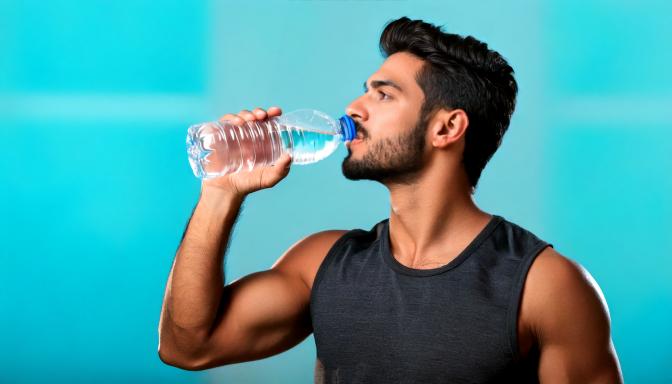For the active individual, understanding the link between hydration and exercise performance is as critical as a well-planned workout routine. The human body is roughly 60% water, making it a key element in physiological processes, including muscle function and energy production. Let’s dive into the science of hydration and discover how it can optimize your athletic prowess.
Hydration and Your Body
Water plays a vital role in maintaining homeostasis within the body. It regulates body temperature, lubricates joints, and transports nutrients to cells. During exercise, your body temperature rises, and water is lost through sweat to cool you down. This loss needs to be compensated to avoid dehydration, which can impair your performance and, more importantly, your health.
The Impact of Dehydration on Performance
Even a small degree of dehydration can be detrimental to exercise performance. A loss of just 2% of body weight in fluid can lead to a noticeable decrease in physical and mental capabilities. Dehydration can cause fatigue, reduced endurance, increased heart rate, and a perceived increase in effort for the same workload. For the young athlete, staying hydrated is essential to maintain peak performance and to keep reaction times sharp.
How Much Water Do You Need?
The amount of water required can vary significantly based on individual factors such as age, weight, climate, and the intensity of exercise. While the “8×8 rule” – eight 8-ounce glasses of water a day – is easy to remember, it may not be sufficient for active individuals. The American Council on Exercise suggests the following guidelines:
- Drink 17 to 20 ounces of water two to three hours before starting your exercise.
- Drink another 8 ounces 20 to 30 minutes before beginning your workout or during your warm-up.
- During exercise, drink 7 to 10 ounces every 10 to 20 minutes.
- Within 30 minutes of completing your workout, drink an additional 8 ounces.
Electrolytes: The Unsung Heroes
When you sweat, you lose more than just water; you also lose electrolytes like sodium, potassium, and chloride, which are crucial for muscle contractions and nerve signaling. Replenishing these electrolytes is key, especially during long-duration activities or high-intensity workouts. Natural sources include fruits like bananas and oranges or hydration supplements designed for athletes.
Signs of Dehydration
Being able to recognize the signs of dehydration can help you take action before it affects your performance. Symptoms include thirst, dry mouth, fatigue, dizziness, and dark-colored urine. Listen to your body; thirst is a clear signal that it’s time to rehydrate.
Hydration for Recovery
Post-exercise hydration is just as important as pre- and mid-workout hydration. Replenishing fluids after exercise aids in recovery by removing toxins, reducing muscle soreness, and repairing tissues. Ensure you continue to drink water or a sports drink after you’ve finished your workout to aid in the recovery process.
Hydration is an often-overlooked aspect of fitness that can significantly impact your exercise performance and overall well-being. Young men, with their active lifestyles, should be particularly mindful of their hydration status. It’s not just about quenching your thirst; it’s about fueling your performance, recovery, and health. Remember that water is the most accessible performance enhancer; make sure you get enough of it to power through your workouts and daily activities.
Incorporate a conscious hydration strategy into your fitness regimen and watch as your performance reaches new heights. Drink up, and let your athletic potential flow!






